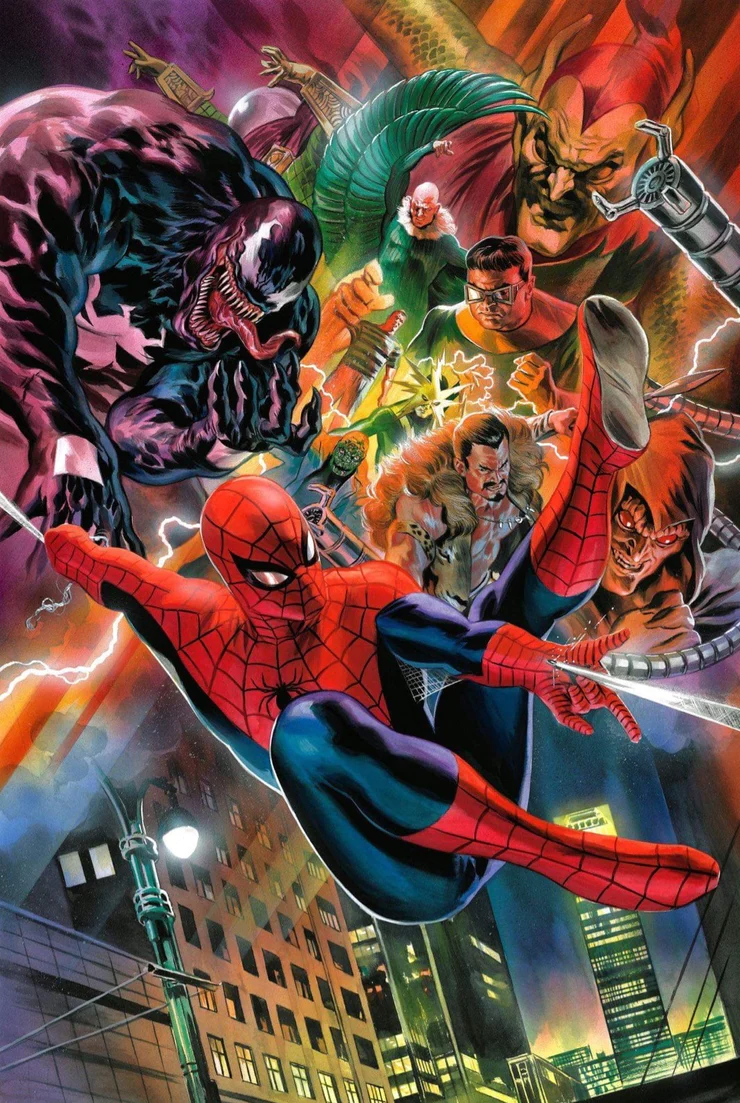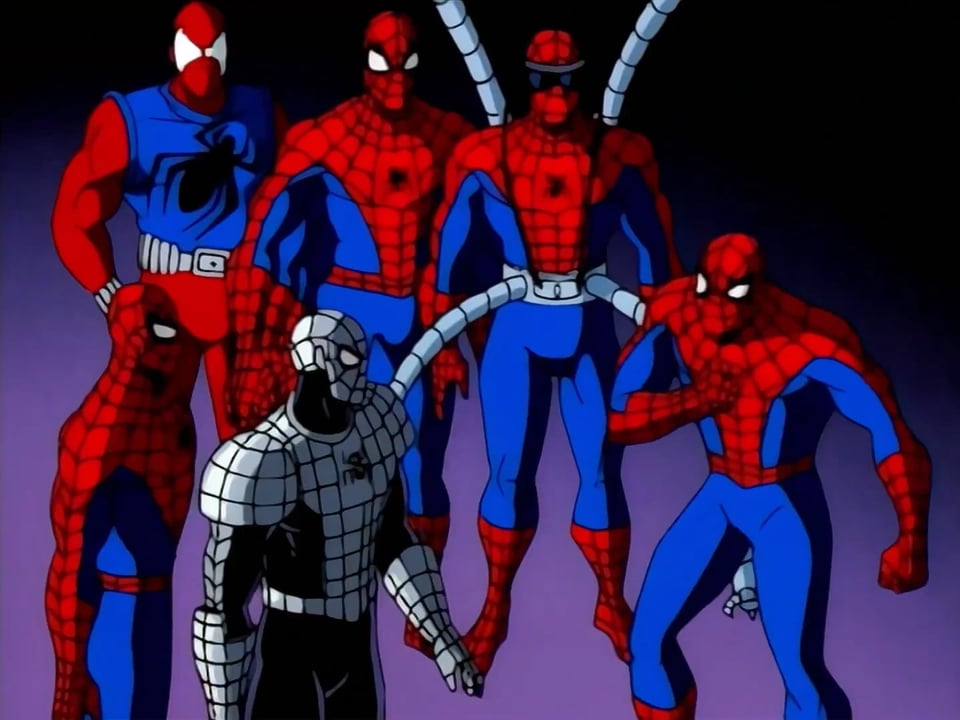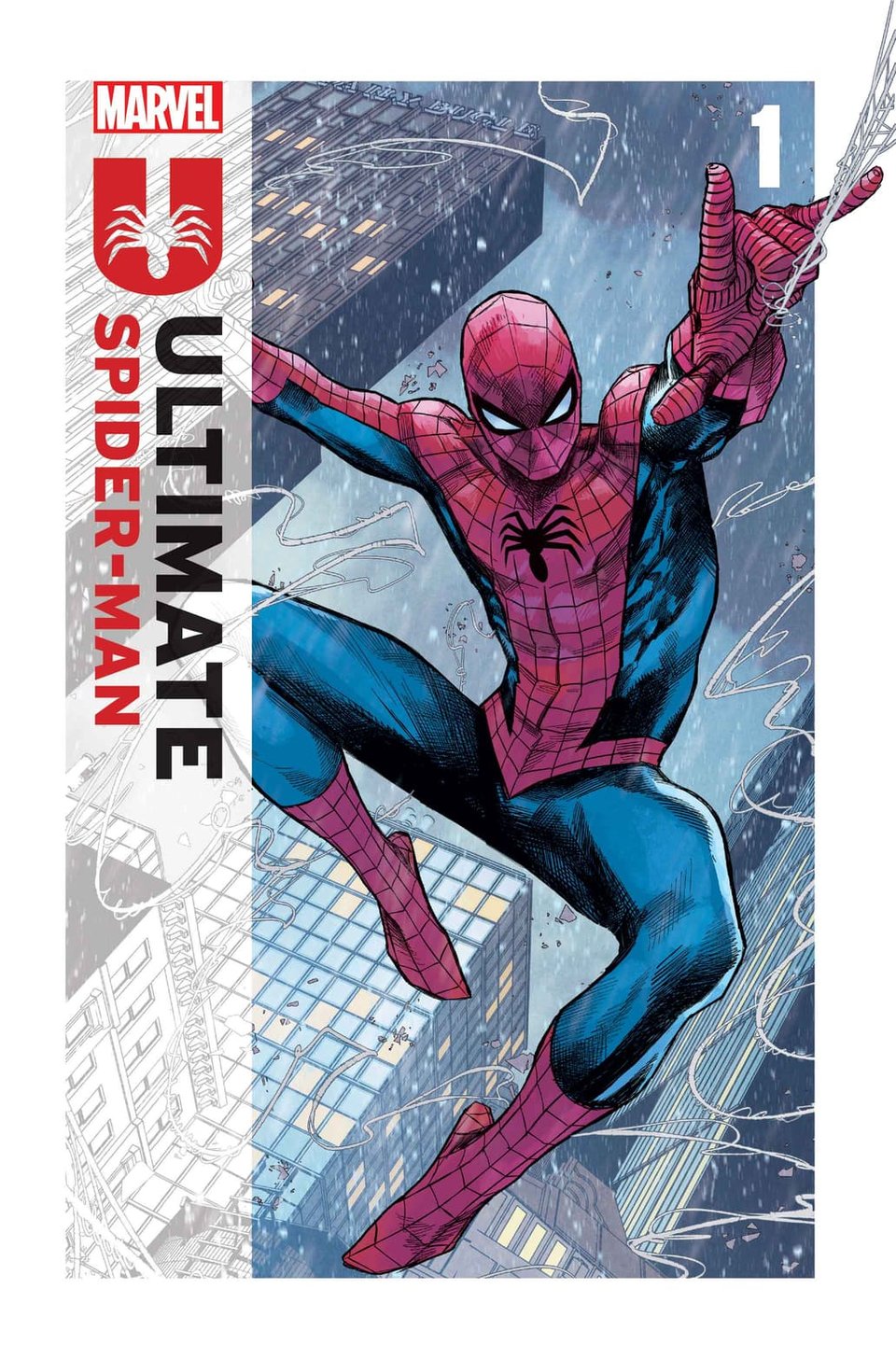Quick little special: First Patreon question!
2023 roundup's later this month, but first, a post dedicated to a milestone! I got my first question on Patreon - you can DM me questions there for pledging a dollar a month, and if I've got something for you I'll answer them either upfront in other posts or in big multi-question batch posts! I'm giving this one a newsletter all to itself though, to mark the occasion and since its implications are the type I can go on about for a bit.
Media recap first though: since the last post, I've read Landscape with Invisible Hand (a well-constructed and engaging novella after an imo uninspiring start, though an extremely 'what if it was white people who had colonial injustices visited upon them via sci-fi' text so your mileage may vary) and The Forensic Files of Batman (enjoyable mealtime reading by Bat-stalwart Doug Moench, though the final note is one that clashes radically with the tone and aesthetic landscape of the rest of the book), and watched The Spider Within and the first episode of A Gentleman in Moscow, the latter of which seems promising and sees Paul Ready steal the pilot even from Ewan McGregor as the lead. Comics-wise I read The Way of the Househusband Vol. 11, Hell's Paradise: Jigokuraku Vol. 2, and Frieren: Beyond Journey's End Vol. 3, and finished Nausicaa of the Valley of the Wind.
From my good friend Justin Martin:
Spider-Man can't continue to be a multiversal hero -- that well is getting drier and drier. But I also don't think we want the thousandth fight with Electro as the bills come due and Aunt May has her gall-bladder removed. What do you see as the next sustainable direction?
(Of course, Ultimate is having its day in the sun, but how do we make Amazing amazing?)

This is a perfect one to kick off with because there is no appropriate short answer. 'Give it to Miles' isn't incorrect, but hardly comprehensive. 'Undo One More Day' is even more lacking. Like, I actually like the current ASM run for what it is for the first time in years and years, and I would never argue it isn't a systemically broken title in ways that are regularly fucking with Zeb Wells' relatively modest goals.
Some of it's the constant editorially imposed crossovers and stunts, some of it's self-inflicted (directly following through on the stuff Nick Spencer set in motion with Osborn was bold and NEVER going to be generally liked regardless of execution), and some it's hard to say (how much of the Rabin stuff was Wells left to his own devices vs. Marvel needing the Peter/MJ breakup his run builds off of to be An Event). But the simpler fact is the tradition of ASM as a book driven by discrete A/B/C plots - one I think the book is currently trying to hold to about as hard as any major title in the direct market - is smashing hard against its 'duty' to fit into tidily resolved TPB-sized arcs, plus the aforementioned editorial impositions, plus getting out significantly more than 12 issues a year. And you can't ditch any of those threads the way other characters can afford, because you need Spidey vs. regular chumps as the bread and butter, you need to occasionally pit him against larger threats to underscore how hard The Hero Who Could Be You can be thrown out of his league, and you've gotta check in with the friends and family to remind everybody Peter Parker's supposed to also be a normal guy with those attached stakes.
I think Wells and the various artists involved have a solid set of beats they want to hit (gnarly Spidey vs. gangsters, classic Spidey vs. villains, Peter 'vs.' the threat of Spidey completely destroying his life finally pretty much coming true, all against the backdrop of everything with Norman) and with more technical skill behind it than the title's seen in literal decades, but everything's scrunched and compromised and grinding against its other moving parts; I'd have dropped it by now if my impression wasn't that it's nearing the end. As Justin would attest on at length himself, that kind of classic Marvel plate-juggling is out of fashion altogether, it's just too entrenched in Amazing's DNA to drop from that specifically even as the industry landscape is increasingly ill-equipped to accommodate it. If anything, from what I saw Spencer's run was the most in that mode of anything in a very long time, so I'm not shocked a lot of people dug it even if I had less than no time for it.
It also brought back the largely-abandoned conceit of the 'mastermind' figure of a given era of Spider-Man, giving the heroic end of things a sense of continuous forward momentum without necessarily drawing every aspect of the narrative into it: the 60s had Goblin 1.0, the 70s Harry, the 80s Hobgoblin, the 90s everyone involved with the clones, the 00s Norman back with a vengeance and scaled up to the whole of Marvel. In the 10s though things got weird in the first half when the mastermind in Otto also became the protagonist, and the back end you've got Kindred, and sure pal. These days Goblin, Doc Ock, and Venom are all varying degrees of reformed or scaled back, so there's no obvious lightning rod figure, just another showing of how aimless everything has gotten; even if you did go for it they don't get to be part of the texture that'll eventually culminate in something way down the line anymore, they're the entire deal of a given run and conclude with it because that's how superhero runs work now. Nothing gets to boil at length anymore, and it annihilates the delicate Spidey shenanigans/Peter soap/OH NO balance.
And then there's the multiverse.

The funny thing is each individual step of him becoming the multiverse guy makes sense. The 1994 show was already on a wild extra-superheroic scale - Kingpin residing on the top floor of the Chrysler Building with one side of the building sliding down to become a helipad, Green Goblin falling into another dimension instead of being impaled, a Secret Wars adaptation, a whole arc about Peter having to manage his medical condition of turning into a giant spider - so it turning Clone Saga into Crisis on Infinite Spider-Men for the prospective (and indeed actual) finale was about as sensible as anything else. Then the video games entered a period of oddball experimentation trying to figure out what to do after Spider-Man 2, and making one of those about gathering up the oddball variations that had cropped up over the decades - because the costume's a simple outline with a bunch of details thrown on, it's easy to come up with a fun variant by throwing on a different set of details and still having something recognizable as that guy - checked out. Then Ultimate had to make Miles meeting Peter a multiverse thing, then Slott ported his game idea to the comics since that was now on the table and subsequently ran it into the ground, then the movies wanted to have their 'Miles is inspired by the death of Peter' cake and eat 'Miles is mentored by Peter' too, and at that point throw in the others since that's become an established thing, and oops it rules and now you have a franchise. Every step makes enough sense that you can understand how they missed this was a completely bugfuck thing to make Spider-Man about. Plus he's one of the only three characters with enough public exposure for 'let's engage with the history and variations like that' to play with general audiences, and Superman and DC in general were in too much turmoil to ever capitalize on it, and it's even further from Batman's deal than Spider-Man's (though The Lego Batman Movie did much the same thing in fine fashion).
So there's alla that, even as it'll likely be in the rear view after Beyond. AND now we've got this guy:

All the splashy fan-pleasing headlines about this being a more mature and well-adjusted family man Spider-Man won a ton of praise upfront even as things seem poised to get significantly grimmer, and its big tack on 'Miracleman'-ing the premise by turning the adolescent power fantasy into a midlife crisis one is inspired. But what's easy to miss is how Hickman and Checchetto and companies' built in ingredients for the new Ultimate Spider-Man makes it the most structurally 'normal' Spidey comic in decades. The mastermind figure I discussed before is inherent to the premise to drive everything forward, and the remixed nature of everything plus Peter's immediate familial connections demands regularly checking in on the civilian cast and classic villains. At the same time it's entirely self-contained without the machinations of the mainline, and the real-time one-month-one-issue setup means each issue has to be a relatively self-contained entry where you get a fun little Spider-Man escapade alongside checking in with the other major players, and the ticking clock aspect means nothing gets to stay on the back-burner for long. It's forced itself into a position where it HAS to work like a classic Spider-Man comic in a way the actual classic Spider-Man comic hasn't in most of my lifetime.
In a more ideal world, if not fitting itself as strictly into that model, Amazing Spider-Man could learn from it; the original Ultimate Spider-Man was practically the originator of 'written for the trade' and had to occasionally deal with books outside Bendis's purview, and it still made it work gangbusters. But USMs old and new got to have extended creator-driven runways; ASM has dozens of masters to serve. We've been seeing the big two get more small-c conservative across the board for years now: Superman pulling back from the concepts introduced by Bendis and Morrison into a neo-90s take, Batman continuing to fall into the post-Morrison conceptual spiral (which Ram V seems to be giving the final word on in Detective Comics at the moment), Hal's back to being the regular GL after The Green Lantern sent him off in fine fashion, the X-Men are wrenching things back to pre-Hickman just as the Avengers have been scrambling for purchase ever since he left almost a decade ago. I expect after the reception to Wells we'll see a similar reversion for Spidey much like Spencer's tenure, just as the reception to Bendis on Superman and King on Batman represented definitive ends to forward momentum on those titles.
(Frankly I think those halts have also come with a near-total falloff in basic craft for a LOT of the significant mainline big two titles - and that both companies have been filtering their audiences into a group who'll accept it for years - but that's a whole other essay.)
So my answer for 'how do we fix it' is 'probably this isn't an environment where that's happening'. Spider-Man's already been a character for me defined by punctuation, where I'll go years at a time without much caring and then a movie or special comic project will happen to make me go 'oh shit! Spider-Man! Love that guy!' If anything the Insomniac games have been more suited to capturing the classic flavor than anything else in awhile: A-plot in the main story, B-plot in the side missions, C-plot with the civilian cast filtering in, the random encounters filling the role of the traditional interstitial 'Spider-Man styles on some chumps' scenes. It's no wonder he's always done so well in games; all else aside, he's built to thrive within its modern narrative structure in a way he hasn't been in his native medium in a long, long time.